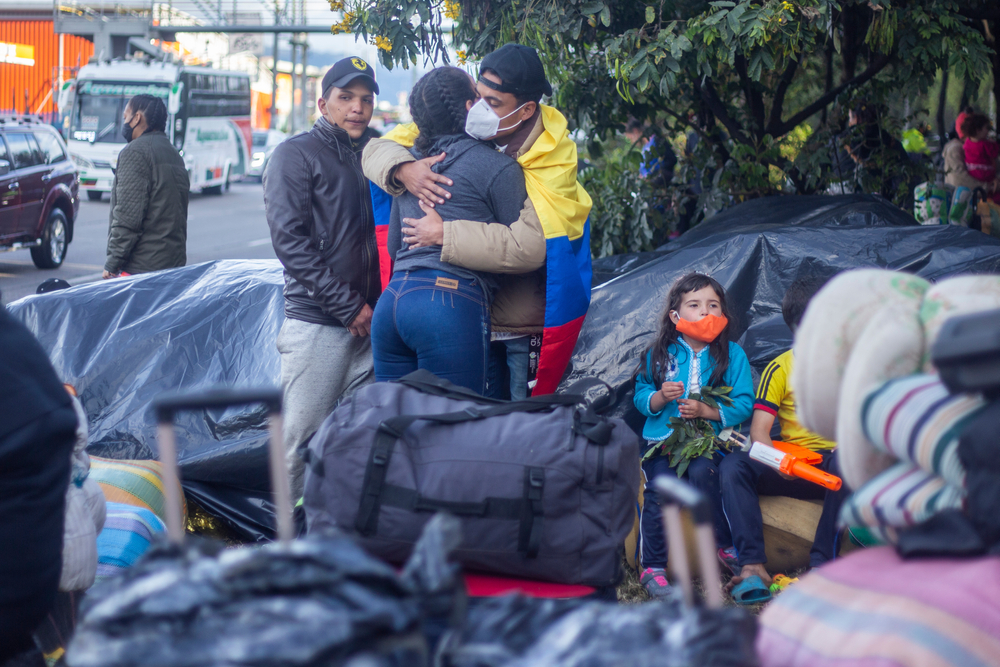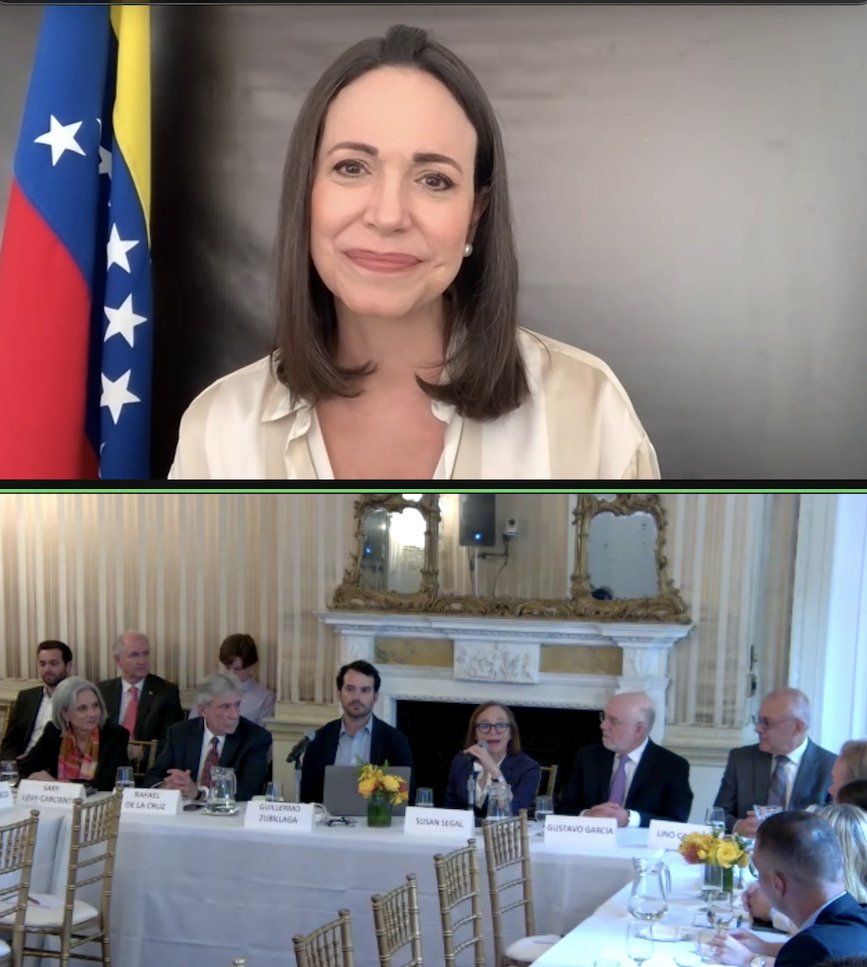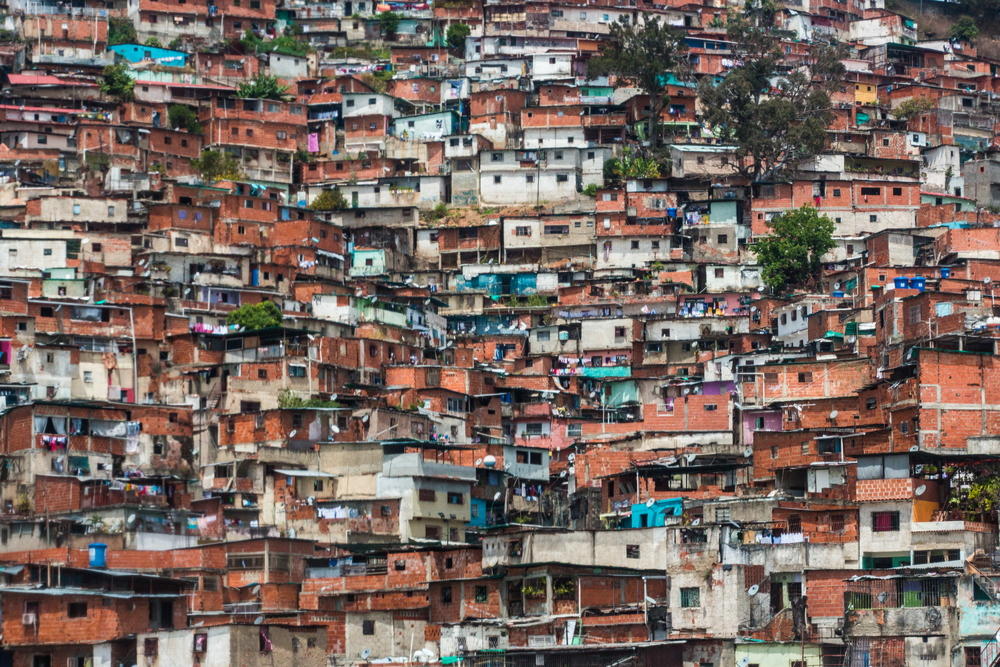CARACAS, Venezuela—Venezuela’s leading opposition candidate María Corina Machado says she would privatize the upstream and downstream sectors of the Caribbean country if elected president in 2024.
“Our plan will open Venezuela’s energy sector to attract investors by ending the state monopoly and transitioning the oil sector to private ownership,” Machado said July 18 during a webinar. “My plan is to privatize all hydrocarbon extraction and downstream activities that can safely be assumed by the international and national private sector, and transform Venezuela.”
While admirable, the plan would be a massive undertaking by any government given Venezuela’s epic collapse in the last 10 years. In Machado’s case in particular, the largest headwind she faces is her recent restriction from holding public office for 15 years by the Venezuelan government of Nicolas Maduro due to her radical tone, which includes backing U.S. sanctions.
Venezuela has been under so-called “socialist” rule since 1999 when the late Hugo Chávez first won the presidency. After his death in 2013, his predecessor Nicolas Maduro took the reins and has been in charge since.
Machado, a 55-year-old industrial engineer and former lawmaker, stressed that more domestic and foreign assistance was necessary to achieve “free and fair” presidential elections in late 2024.
After nearly a quarter century of so-called “socialist” leadership, it seems that a miracle is the only thing that could save Machado—and Venezuela.
For Machado, the journey towards a transition government requires addressing several crucial and concurrent crises: security, sovereignty and state territorial control, public services and economic and humanitarian troubles.

The last crisis has seen over 7 million citizens flee Venezuela, including many from the oil sector due to low wages and dangerous work environments, resulting in a massive brain drain of talent. Many citizens that have fled the Caribbean country will likely not return due to ongoing uncertainties, even if an opposition leader were to win the presidency.
Additionally, widespread corruption across Venezuela’s oil sector continues to deter investors, while years of oil rent mismanagement and a lack of regular maintenance in upstream, downstream and midstream infrastructure will require years—if not decades—to return to an operating state even at a shadow of the sector’s former peaks.
Geopolitically, Caracas and Washington still don’t see eye to eye, and U.S. sanctions have only worsened the divide, thus making the push for “free and fair” elections much more difficult.
Venezuela’s economy and petroleum sector have already touched bottom, and the country’s return to its former glory might never happen, especially under current leadership. If that is the case, Venezuela could remain in a Cuba-like existence with one ruling party and widespread poverty, with the one advantage of its oil exports generating income for government coffers. And that too might only be for another two to four decades with the energy transition picking up speed.
Still, Machado reiterated Venezuela had significant hydrocarbon and renewable energy potential to become a global oil powerhouse. But she admitted that considerable private investment and cutting-edge technology was needed to take advantage of the resources.

“We will set a competitive, an attractive framework of legal, fiscal, commercial and financial conditions, including the reform of the hydrocarbons law to assure a predictable regime for royalties and taxes,” Machado said in a video call from Venezuela to New York for an event hosted by the Americas Society/Council of the Americas (AS/COA).
Initiatives proposed by Machado look to establish rule of law and judiciary system independence while ensuring respect for private property, fostering open markets, stabilizing public service and addressing social needs.
Turning Venezuela into the energy hub of the Americas
Machado—who ran for the presidency in 2012 only to lose the opposition primary to Henrique Capriles—said her plans to rebuild Venezuela and achieve long-term economic growth would be based on four fundamental pillars, of which three depended on rescuing the country’s hydrocarbon sector.
Venezuela, a founding OPEC member, is home to the world’s largest oil reserves at around 304 Bbbl and the world's seventh largest gas reserves, according to BP’s Statistical Review of Energy. Earlier in the century, the country was one of the largest oil producers and exporters in the Latin America and Caribbean region. The lion’s share of Venezuela’s reserves are found in its Orinoco heavy oil belt, or Faja, with its massive heavy and extra-heavy reserves, though it does have a high sulfur content.
Amos Global Energy President Ali Moshiri, Chevron Corp.’s former head over Venezuela, reiterated during the event that the world needed Venezuela’s heavy oil.
Venezuela also has sizable steel resources and other minerals, including gold.
“In general, we will leverage our vast hydrocarbon and clean energy resources alongside our prime coastal location at the heart of the western hemisphere to turn Venezuela into [a] superior investment opportunity within the global energy transition process and provide reliable, safe and clean energy to the rest of the world,” Machado said during her participation in the call.
Machado’s energy sector plan aims to convert Venezuela into the energy hub of the Americas and consists of six key points:
First, Venezuela needs to boost oil production to over 3 MMbbl/d in seven or eight years, compared to just below the 800,000 bbl/d currently being produced, while also significantly reducing the country’s carbon footprint.
RELATED
Chart Talk: Venezuela’s Massive Production Meltdown
Second, Venezuela’s 221 Tcf of proven gas reserves must be developed and production boosted to around 12 Bcf/d within eight years to export gas to the rest of the world. Within five years, Venezuela could export around 5 Bcf/d to Trinidad and Tobago, Colombia and Brazil, according to Machado, citing details from her economic and petroleum team. The exports could increase as Venezuela’s internal electricity crisis is resolved, she said.
Third, Venezuela’s 32,000 megawatts (MW) of combined thermal, hydro and renewable energy generation capacity need to be recovered and expanded by more than 20,000 MW.
Fourth, Venezuela must develop its potential to produce green steel and aluminum and competitively produce blue hydrogen, ammonia and methanol by capturing CO2 emissions within depleted oil fields.
Fifth, the country needs to guarantee a consistent, stable high-quality electricity supply across the country to drastically improve the welfare of Venezuelan families and drive economic development.
And sixth, implement a comprehensive plan to connect households, commercial entities and industries to the national gas grid. Currently, a lot of households and even small businesses are still reliant on LPG for cooking needs.
Machado said Venezuela has other advantages to help revive its once thriving energy sector, including a highly skilled energy workforce; one of the world’s largest refining complexes, which with necessary repairs and upgrades, could have the potential to boost exports of refined products across the Americas and beyond; close proximity to major refiners on the U.S. Gulf Coast; and sufficient gas reserves for the energy transition.
Machado also said Citgo Petroleum, the U.S. subsidiary of state-owned Petróleos de Venezuela, S.A. (PDVSA), held strategic value and needed to be kept intact until her government was formed.
Evanan Romero, a member of Machado’s economic and petroleum teams, assured investors that her government would welcome companies from all over the world, including China and Russia, which still have a presence in Venezuela. Chevron is the lone U.S.-based company operating in Venezuela, while Italy’s Eni SpA and Spain’s Repsol have also retained a minimal presence.
For its part, China originally lent Venezuela around $65 billion in loan-for-oil deals. To date, around $12 billion is still outstanding, Romero said.
Energy-rich Russia’s presence in Venezuela has always been more militarily and politically driven. Moscow has always been keen to provide arms, tanks, military training and political consultancy—in line with political coaching provided to Caracas by Venezuela’s long-time Caribbean ally Cuba.

Economic stabilization, expansion and debt restructuring
The other three pillars of Machado’s plan for Venezuela relate to the economy and the country’s external debt.
Under the economic stabilization pillar, the plan for the economy is based on fiscal, monetary and currency exchange policies—aiming to halt high inflation, financial chaos and currency devaluations. Machado said she would privatize government-owned corporations, which she said were all making losses, reduce the fiscal deficit and reinstate independence at Venezuela’s Central Bank, or BCV by its Spanish acronym.
Under the economic expansion pillar, the plan aims to get Venezuela back to high and sustainable long-term economic growth through an extensive privatization program across all sectors—priority sectors being energy, water, gas, telecommunications and roads—while addressing the humanitarian crisis in the short term.
Machado said additional measures would be taken to strengthen a market-oriented economy, promote growth and increase economic productivity and would entail digitizing and simplifying bureaucratic procedures and generating wealth to drastically reduce poverty.
And finally, under the pillar to restructure Venezuela’s debt, Machado said the aim was to recover the country’s financial sustainability over the medium-to-long term as a necessary condition for high and sustainable economic growth.
“However, we must address the enormous public external debt overhang which has been in a situation of total default for seven years [while] lawsuits in the U.S. and Europe need to be addressed,” Machado said.
Machado said her government would recognize all liabilities and debts before engaging in any debt restructuring, while also looking to restore relations with international financial entities like the International Monetary Fund and the World Bank, as well as others like the International Centre for Settlement of Investment Disputes
“Our government will seek an agreement to restructure external debt through a bond swap process that is financially sustainable [and] offers flexible options so that all creditors receive the same financial treatment,” Machado said.
Recommended Reading
Financiers: Family Offices Worldwide are Queuing to Invest in E&P
2024-10-11 - U.S. family offices have stepped in quickly to fill the void left by other investors while family desks abroad have been slow to move but they’re watching closely, financiers say.
The Karl Rove Oil Executive Poll Result: The Industry Is Not Happy
2024-10-03 - A show of no hands revealed more than 400 attendees at Hart Energy’s Energy Capital Conference are not happy with U.S. politics today—and have no confidence it will be better after Nov. 5.
Comments
Add new comment
This conversation is moderated according to Hart Energy community rules. Please read the rules before joining the discussion. If you’re experiencing any technical problems, please contact our customer care team.



